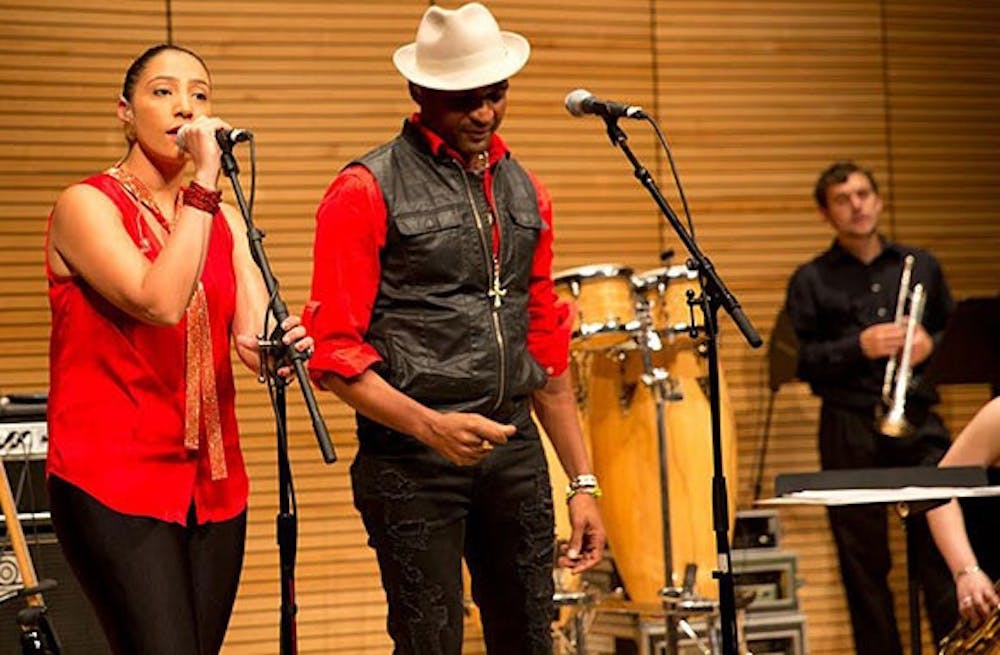“Ivy League Rumba,” a documentary covering the Latin Jazz and Pop Festival held at Brown last fall, premiered Thursday at the Watson Institute for International Studies. The film explores contemporary Latin music in the United States, using performances from top Latin artists to showcase the fusion of modern music trends with traditional sounds and rhythms.
The screening, hosted by Brown’s Center for Latin American and Caribbean Studies, was featured in the 24th annual Providence Latin American Film Festival. “The goal is to really bring great films to the area, but also to showcase local talent as much as possible and also to … ignite the creative passion of the local artist community,” said Ron Crosson, treasurer for the PLAFF. The screening marked the continuation of a long-standing collaboration between CLACS and PLAFF, with the University historically being heavily involved in the festival.
The film revolved around the premise that most people do not understand rumba on a musical level — but they know they like it. “The rumba, the rumba is a feeling,” said a performer featured in the documentary. And it was a feeling that permeated the musicians onstage, their live audiences and the viewers in the room, many of whom sang along with the performers and matched every word.
The documentary delves into the history of rumba, a dance-oriented musical style developed by Afro-Cuban workers. The film follows rumba’s arrival on the American music scene, prompted by a partnership between renowned Cuban jazz musician Chano Pozo and Dizzy Gillespie, who was heavily influenced by Pozo. Co-director Joe Cardona stressed the importance of knowing how the musical genre originated and evolved. “Knowing is half the battle,” co-director Ralf Gonzalez added.
Cardona connected the rich history of Latin musical traditions to the narrative of American identity. “I think we’re redefining America,” he said. “I’m a proud American — of Cuban descent, of Puerto Rican descent — and I think that we are an amazing country, and that’s what makes us strong.”
To illustrate this point, the film contains a tasteful balance of musical exposition, narration and interview. There are several continuous minutes of powerful performance by Afro-Cuban funk band PALO! featuring vocals by Leslie Cartaya, one of several artists featured in the documentary. “What you heard is what you heard,” Cardona said. “Leslie sings the hell out of everything, and they bang those drums like no one’s business. There’s no doctoring, that’s the real deal.”
While last year’s Latin Jazz and Pop Festival serves as the subject of the film, its focus reaches much further. The film described the recent resurgence in Afro-Cuban music as a kind of renaissance. Director of CLACS and Professor of Political Science Richard Snyder, who held a Q&A with the film’s directors after the screening, linked the movement to changing demographics. In Providence, roughly 40 percent of people are of Hispanic or Latinx origin, Snyder said, adding that in a community containing so much Latinx culture, he found the process of organizing the music festival organic.
Cardona attributed much of the movement to changes in the political climate, given the United States’ recent lift of its embargo on Cuba. For years, political tension had acted as a roadblock in the cultural dialogue between the two nations, he added.
“When politics on both sides step out of the way, you’re going to see a boom like you’ve never seen,” Cardona said.





